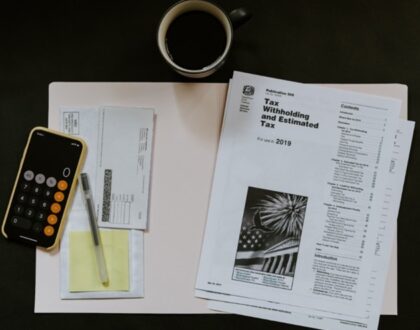How to expand your tax knowledge with TAT University?

Tax is considered a highly prestigious and rewarding profession throughout the globe. However, it’s challenging and requires remaining updated with changing rules, regulations, tax codes, and technical dynamics. Hence, there is a strong need to expand skill sets and keep an eye on evolving tax requirements.
At TakeAway Tax University, we expand your knowledge beyond the prepping stages of tax filing and help you provide your clients with more key details when it comes to their taxes. So, there is a need to understand taxation through continued education with perspective to an innovative business model, strategic thinking, intellect, influencing, diverse perspective, credibility, and confidence. We aim to develop all of these skills besides technical taxation, including tax planning, tax compliance, and overall tax education.
Tax planning refers to settings business numbers in such a way that leads to the lowest tax liability. It can be done by utilizing tax allowances and rebates most efficiently. However, at the same time, we must not bypass applicable laws/regulations. This is something called efficient tax planning that can be done with core strategic thinking and a proactive approach to managing the accounting/business/taxation aspects.
How does tax planning work?
The basic purpose of tax planning is to attain financial goals by reducing tax liability. This can be done by tracking the expenses, classifying transactions into the appropriate category, conducting inclusive research to ensure tax/accounting records are accurate, and filing taxes on a timely basis.
Further, tax planning starts with the start of the business. For instance, the first step in effective tax management is a selection of appropriate business structures. It’s because the tax rate changes with a change in business structure. In simple words, tax to be paid by the company is different from tax paid by self-employed individuals. Similarly, the tax rate on multiple transactions changes with the change of state/services/products and multiple other factors. Hence, tax professionals need to manage widespread operations to manage the tax. It means tax planning for different businesses is different and highly dependent on the competence/understanding of tax professionals.
Overall, tax planning is based on the following three areas.
- Reducing your income – it can be done by investing in tax-approved schemes. For instance, a contribution for the retirement plan, charity/donation, and student loan interest can be deducted to arrive at taxable income (this is the income level used for calculating the tax).
- Increasing deductions from income – Not all expenses can be deducted from revenue to calculate taxable income. For instance, penalties/fines cannot be deducted, and you need to pay the taxes despite incurring these expenses. Hence, there is a need to maintain an itemized list of expenses.
- Appropriately utilizing tax credit – The tax credit is always limited and must be utilized most efficiently. For instance, priority must be given to income that requires a higher interest rate while complying regulations.
Further, it should be noted that tax is technical stuff and needs to be managed with logical business understanding, operational business management, improved business processes, and technical dynamics.
Tax technical dynamics
The complexity of the applied taxation varies with the business paying the taxes. For instance, we need to apply multiple sections and tax rates on the business earning revenue from multiple sources. Similarly, tax laws change in line with a change in a business location, product/services, and multiple other factors. So, to be a successful tax professional, the first step is to understand the business.
Our training methodology
Our teaching methodology is based on the following six areas that help to sharpen your knowledge.
- Regulatory landscape and how you remain updated with changing tax regulations.
- The flow of data into tax function. It helps to speed up tax planning and tax compliance.
- Tax function and related analytical tasks (Technology automation).
- Tax-related record management and governance system.
- Tax functions and process management.
- To make you a successful tax professional equipped with technical and soft skills.
Conclusion
TakeAway Tax University is an extension of your education that trains you in tax leadership, technical competence, tax-related technology/software, strategic thinking, and problem-solving skills. Further, we help you stay updated on the latest tax law, forms, and software changes. We teach you how to be a year-long asset to help your clients file their taxes and help them create a tax strategy for the next year and save the most.
Our courses are designed to enhance your taxation career and stand out in the market. So, if you are a seasonal tax professional or looking for a reputable career in taxation, this course can help achieve your dream. Our new training courses start on June 1st, 2022. Enroll today.
Recommended Posts

Accountant vs. Tax Pro: Differences & Advantages
July 20, 2023




